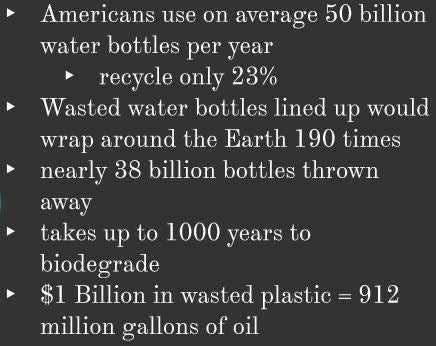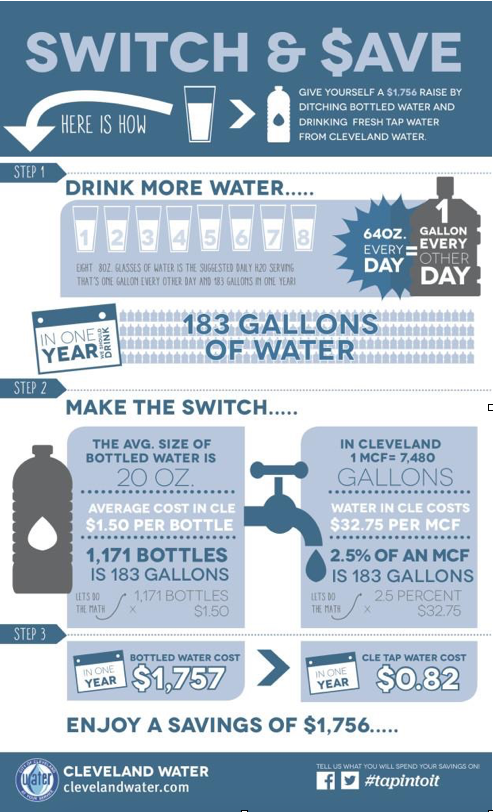Preventing Waste and Promoting Healthy Living
Why do so many Americans still go to the vending machine for a bottle of water instead of using refillable bottles? It’s true that water is the go-to healthy drink and has many benefits. But did you know buying plastic bottles not only hurts your wallet and the environment, but chemicals in the plastic may possibly hurt your body as well?
An Easy Solution
Reusable water bottles save you money while keeping you hydrated and healthy. On average, Americans spend $5 a week on water bottles or $260 per year. One easy money-saving solution is to buy one reusable bottle and get back its value with one week of use. There are many readily available choices in almost any retail store. You can find reusable neoprene, glass or stainless steel bottles easily online or at the campus bookstore.
Recycling Rates
According to the Ban the Bottle campaign, Americans used about 50 billion plastic water bottles last year. However, the U.S.’s recycling rate for plastic is only 23%, which means 38 billion water bottles – more than $1 billion worth of plastic – are wasted each year. We’re up to a 22% diversion rate here at CWRU. Are you recycling your water bottle on campus?
Your Health
In addition to being costly and not often recycled, plastic water bottles can contain Bisphenol A (BPA), a chemical that may be or linked to breast cancer and may be an endocrine disruptor. Switching to a BPA-free reusable bottle won’t only be good for the environment, but for you too! We like glass and stainless steel options the most ourselves.
Filter
Is the taste of your tap water bothering you? While surveys show that most people can’t tell a difference, some may live in areas where their water has a high mineral content. If this is the case, you still do not need to buy bottled water! Try a water filter like Brita or Pur.
Let’s do better for the Earth, for our wallet and for our health by choosing to reuse water bottles instead of using single bottles. Let us know if you made the switch on our Facebook page or Twitter!
Story by Claire Holliday, Sustainability Ambassador



